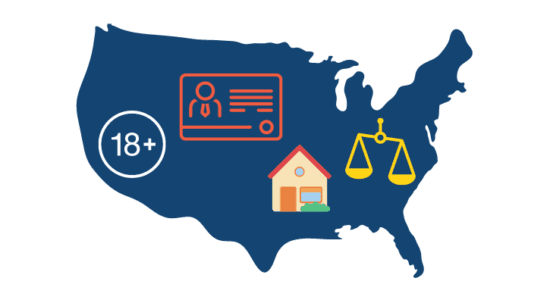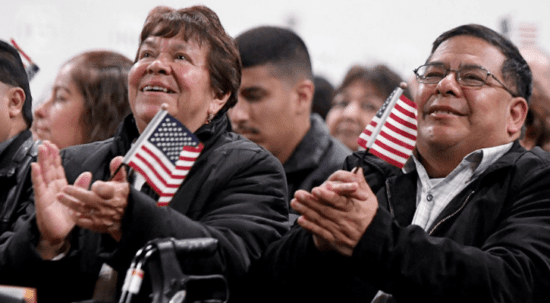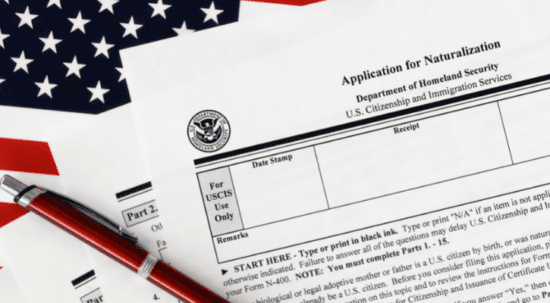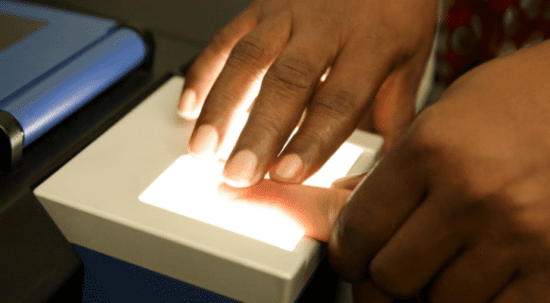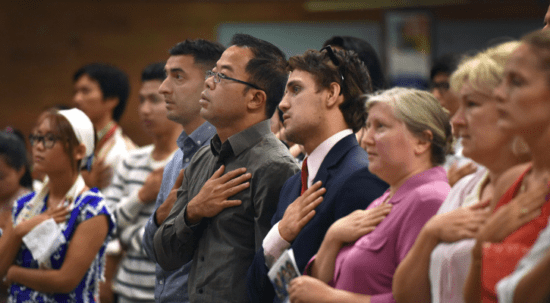Parts of the interview
At the naturalization interview, a USCIS officer will ask you a series of questions to decide if you can become a U.S. citizen. It has 3 main parts:
- Questions about your Form N-400.
- An English test to check your ability to speak, read, and write basic English.
- A civics test to check your know U.S. history and government.
| USCIS is considering changing some parts of the English and civics tests. If you already have a scheduled interview, these changes should not affect you. We will update this page with more details when they are announced. |
(https://www.youtube.com/watch?v=MHjOVa6HGHI&t=95s)
Before your interview
- Confirm the location, date, and time
- Check directions on how to get there
- Collect all the required documents
- Review your Form N-400 answers
- Study the 100 civics questions
- Practice using a tablet stylus pen
What to bring
Review the instructions for Form N-400 for a full list of documents to bring to the interview starting on page 11.
You will need to bring:
- Appointment notice
- Permanent Resident Card (Green Card)
- All valid and expired passport
- State I.D. (such as a driver’s license)
Other items can include:
- Original documents requested, such as:
- Proof of marital status
- Name change documents
- Certified copies of court cases
- Selective service proof (for men 18-26)
There is no official dress code but it is recommended to dress nicely for your interview.
Arriving at your interview
It is important to arrive early to the field office. This will give you time to pass through a security check. Show your appointment notice to the attendant at the check-in desk. The attendant will take your photo and fingerprints. You will sit in the waiting room until the immigration officer calls you for your interview.
The officer will greet you and direct you to their office, this may include a handshake and smile. In some cases, you may take your test at an information desk or in the waiting room. You will be asked to remain standing and take an oath. You will have to raise your right hand and swear to speak the truth. You will have to give your interview notice, Green Card, passport, and state ID to the officer.
Form N-400 questions
The officer will review your answers to the questions listed on your Form N-400. They will also ask if there are any changes to your application. These questions help the officer confirm that the information in your application is true and up to date.
Naturalization English test
The English test has three sections:
- Speaking – You must show you can speak and understand English.
- Reading – You must read 1 out of 3 sentences out loud correctly.
- Writing – You must write 1 out of 3 sentences in English correctly.
Naturalization civics test
The civics test has questions about the United States government and history. There are 100 questions you could be asked. You must answer 6 out of 10 questions correctly. Even though it is 2025, the government is still using the 2008 version of the test.
Exemptions
Some people do not have to take the English test or the whole civics test. Some people can take the civics test in their first language using an interpreter. There are also accommodations for people with disabilities.
Learn more about the exemptions and accommodations.
USCIS will schedule your interview after they have reviewed your application and background check from your biometrics appointment. You will receive an appointment notice with the date, time, and location of your interview.
You can look up estimated processing times for your local office.
You can also check the status of your application online by typing in your receipt number.
Yes, if you are sick or have an emergency, you can ask to have your interview rescheduled. Contact the field office on your appointment notice to reschedule your appointment.
After you have completed the interview, the officer will make a decision on your case. If the officer cannot make a decision that same day, they will mail their decision to you at a later date.
96.1% of people passed the naturalization test in 2021!
The officer will make a decision and will either:
- Grant your application if you pass both the English and civics test and are found eligible.
- Deny your application if you failed the English or civics test twice or are found ineligible.
- Continue your application if you do not pass the English or civics test for the first time or if they need more information or evidence.
If your application is granted, USCIS will schedule you for a naturalization ceremony.
If your application is continued, you will be given the next steps.
- If you are missing evidence, USCIS will send you a letter requesting specific information and documents. You must respond within the timeframe specified by the officer.
- If you failed your first English or civics test, USCIS would schedule a second naturalization test. Typically, you will retake your test 60-90 days after your first interview.
If your application is denied, you still have options.
- USCIS will send you a letter explaining why your application was denied and how you can file an appeal. A different immigration officer will schedule a review hearing in your case. You must file Form N-336, Request for a Hearing on a Decision in Naturalization Proceedings within 30 days of receiving your decision.
- If you do not appeal your case, you can reapply for naturalization. You will have to file a new application and attend a full interview.
Next: More information on the N-400 questions and English test
The information on this page comes from USCIS, USA.gov, and other trusted sources. We aim to offer easy to understand information that is updated regularly. This information is not legal advice.

